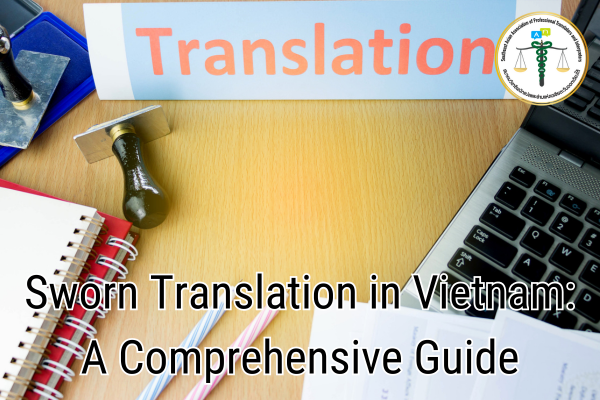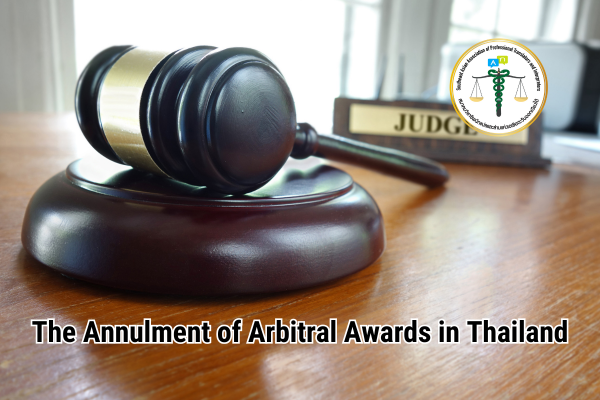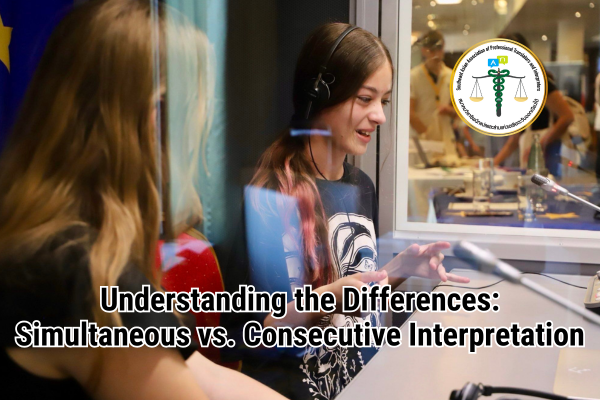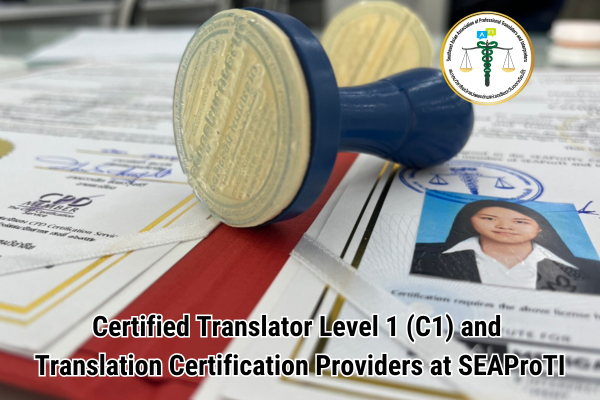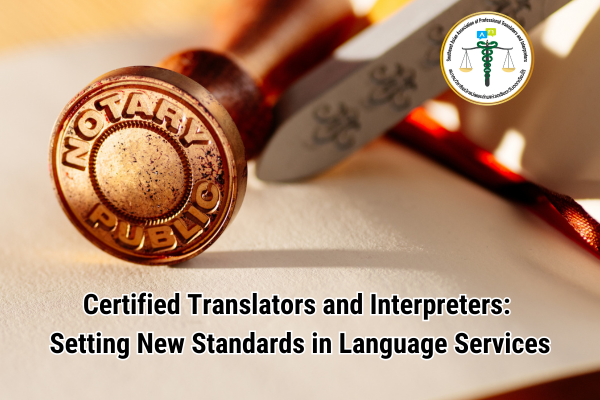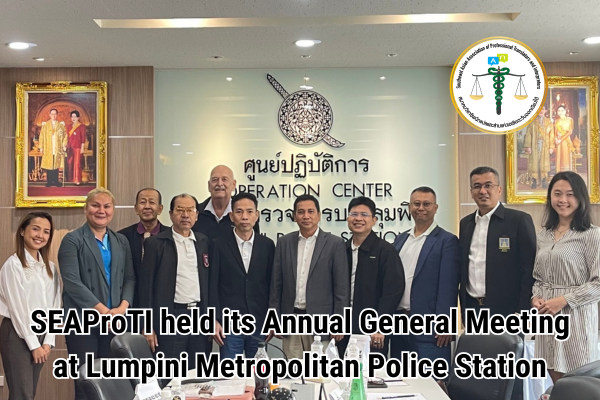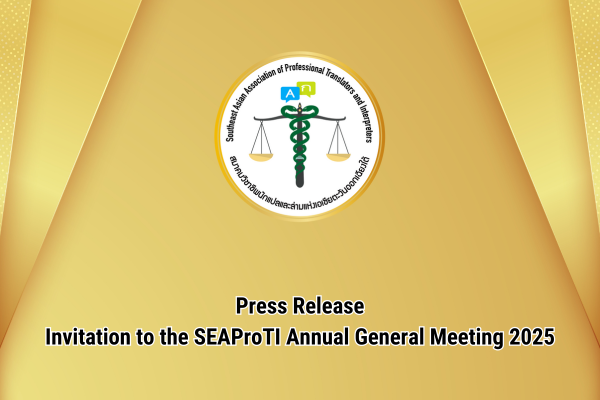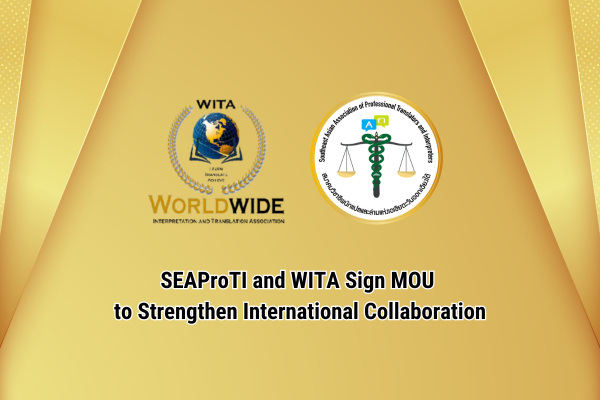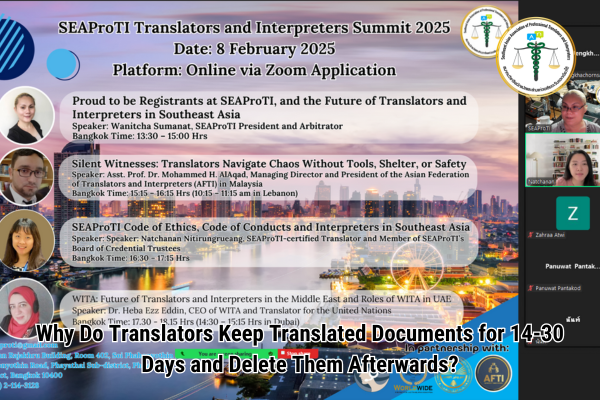Employment Contracts in Thailand: Legal Framework, Rights, and the Role of Certified Translators and Interpreters
10 February 2025, Bangkok – An employment contract creates a legal relationship between an employer and an employee. In Thailand, the principle of the Freedom of Contract allows both parties to enter into a contract, as long as it is not against public order or good morals. Employment contracts can be either written or verbal and can be for a fixed or indefinite period.
An employment contract sets forth certain rights and obligations for both parties. The employee has a duty to perform services, while the employer has an obligation to provide remuneration for those services. Under Thai law, remuneration can only be in the form of money or valuable items and must be paid on a fixed schedule (daily, weekly, monthly, or upon completion of the service).
If an employee willfully disobeys lawful orders from the employer, neglects their duties, is absent from work, engages in gross misconduct, or acts in a way that is incompatible with their duties, they may be dismissed without notice or compensation. If the termination is not the fault of the employee, they may be entitled to severance pay.
The right to severance pay and the amount to be received depend on factors such as the length of employment, the cause of termination, and the type of employment contract. Employees on a fixed-term contract of less than two years who have completed the contract naturally are not entitled to severance pay. Similarly, no severance is due if the employee is terminated for misconduct as described above, or if the employee voluntarily terminates the contract.
Employees who are dismissed through no fault of their own and have worked for the employer for at least 120 days are entitled to severance pay, as specified by Thai labor law. Additionally, there are special rules for calculating severance payments based on various factors, including notice requirements, employment types, and the potential disruption to the employer’s business.
The Role of Certified Translators and Interpreters in Employment Law Processes
As Thai labor law can be complex and encompasses various aspects of employment relations, the role of certified translators and interpreters becomes crucial, especially in legal matters involving foreign language speakers. When dealing with employment contracts, disputes, or termination procedures where one or more parties do not speak Thai fluently, certified translation and interpretation services are vital.
Certified Translators in Translating Employment Contracts
In situations where formal employment contracts need to be translated, particularly for legal purposes, the role of a certified translator is essential. Translating employment contracts requires accuracy and precision, as any misinterpretation could lead to misunderstandings that affect the legal validity of the agreement. Certified translators, especially those accredited by professional organizations such as the Southeast Asian Association of Professional Translators and Interpreters (SEAProTI), ensure that all terms and conditions in the contract are correctly conveyed, minimizing the risk of disputes in the future.
Interpreters in Legal Proceedings or Negotiations
In legal proceedings, such as hearings or disputes involving employment contracts, interpreters play a critical role when parties do not speak the same language. Certified interpreters ensure that communication between the court, employers, and employees is clear and accurate. In cases where employees or employers cannot communicate in Thai, interpreters assist in conveying statements, testimony, or documents, ensuring all parties understand the facts and legal proceedings involved.
Certified interpreters accredited by SEAProTI are trained professionals with the expertise to handle complex legal terms and concepts. Their presence ensures that everyone involved in the legal process is on the same page, contributing to a fair and just outcome for all parties involved.
The use of certified translators and interpreters from SEAProTI greatly enhances the accuracy and fairness of employment-related legal matters. Their involvement not only ensures that legal documents and testimonies are translated correctly but also that communication between parties is facilitated smoothly, promoting transparency and reducing the likelihood of misunderstandings in employment disputes.
SEAProTI’s certified translators, translation certification providers, and certified interpreters:
The Southeast Asian Association of Professional Translators and Interpreters (SEAProTI) has officially announced the criteria and qualifications for individuals to register as “Certified Translators,” “Translation Certification Providers,” and “Certified Interpreters” under the association’s regulations. These guidelines are detailed in Sections 9 and 10 of the Royal Thai Government Gazette, issued by the Secretariat of the Cabinet under the Office of the Prime Minister of the Kingdom of Thailand, dated July 25, 2024, Volume 141, Part 66 Ng, Page 100.
To read the full publication, visit the Royal Thai Government Gazette
สัญญาจ้างงานในประเทศไทย: กฎหมาย สิทธิ และบทบาทของนักแปลรับรองและล่ามในกระบวนการทางกฎหมาย
10 กุมภาพันธ์ 2568, กรุงเทพมหานคร – สัญญาจ้างงานเป็นข้อตกลงระหว่างนายจ้างและลูกจ้าง ซึ่งเป็นการสร้างความสัมพันธ์ทางกฎหมายในด้านการจ้างงาน ในประเทศไทย สัญญาจ้างงานสามารถทำเป็นลายลักษณ์อักษรหรือเป็นปากเปล่า และจะมีผลบังคับใช้ตามหลักการเสรีภาพในการทำสัญญา ตราบใดที่ทั้งสองฝ่ายตกลงกันโดยไม่ขัดต่อกฎหมายหรือศีลธรรมอันดี เมื่อสัญญาจ้างงานมีผลบังคับใช้ ก็จะกำหนดสิทธิและหน้าที่ของทั้งนายจ้างและลูกจ้าง
ในส่วนของลูกจ้างนั้น มีหน้าที่ที่จะต้องให้บริการตามที่ได้รับมอบหมายจากนายจ้าง ส่วนทางด้านนายจ้างก็มีหน้าที่ในการจ่ายค่าตอบแทนให้กับลูกจ้าง การจ่ายค่าตอบแทนนั้นตามกฎหมายไทยสามารถทำได้ในรูปแบบของเงินหรือสิ่งมีค่าอื่น ๆ โดยต้องจ่ายให้ตรงตามระยะเวลาที่กำหนด เช่น รายวัน รายสัปดาห์ รายเดือน หรือเมื่อเสร็จสิ้นการให้บริการ
หากลูกจ้างฝ่าฝืนคำสั่งของนายจ้างโดยเจตนา หรือประมาทเลินเล่อในการปฏิบัติหน้าที่เป็นประจำ หรือขาดงานโดยไม่มีเหตุผลที่สมควร หรือกระทำการที่ถือเป็นความผิดร้ายแรง เช่น การกระทำที่ขัดกับการปฏิบัติหน้าที่อย่างซื่อสัตย์ ลูกจ้างอาจถูกไล่ออกจากงานโดยไม่ต้องแจ้งล่วงหน้าหรือจ่ายค่าชดเชย หากการเลิกจ้างเกิดขึ้นโดยไม่ได้เป็นความผิดของลูกจ้าง ลูกจ้างมีสิทธิได้รับค่าชดเชยตามกฎหมาย
การคำนวณค่าชดเชยขึ้นอยู่กับระยะเวลาการทำงาน สาเหตุของการยุติการจ้างงาน และประเภทของสัญญาจ้างงาน โดยทั่วไปแล้วหากลูกจ้างถูกเลิกจ้างโดยไม่ได้มีความผิด จะได้รับค่าชดเชยจากนายจ้างหากทำงานมาแล้วไม่น้อยกว่า 120 วัน นอกจากนี้ กฎหมายแรงงานไทยยังมีข้อกำหนดเฉพาะในการคำนวณค่าชดเชยตามปัจจัยหลายประการ เช่น ระยะเวลาในการแจ้งล่วงหน้า ประเภทของสัญญาจ้างงาน และผลกระทบที่อาจเกิดขึ้นกับธุรกิจ
บทบาทของนักแปลรับรองและล่ามในกระบวนการทางกฎหมายแรงงาน
การที่กฎหมายแรงงานไทยมีความซับซ้อนและครอบคลุมหลายแง่มุมในด้านการจ้างงาน การแปลเอกสารทางกฎหมายที่เกี่ยวข้องหรือการให้คำปรึกษาด้านกฎหมายให้กับผู้ที่ไม่สามารถใช้ภาษาไทยได้ จึงมีความสำคัญเป็นอย่างยิ่ง ในกรณีที่มีการทำสัญญาจ้างงานระหว่างนายจ้างและลูกจ้างที่พูดภาษาอื่น การใช้บริการนักแปลรับรองและล่ามรับรองจึงเป็นสิ่งที่จำเป็น
นักแปลรับรองในการแปลเอกสารสัญญาจ้างงาน
ในกรณีที่มีการทำสัญญาจ้างงานที่เป็นเอกสารอย่างเป็นทางการ เช่น สัญญาจ้างงานที่ต้องใช้ในกระบวนการทางกฎหมาย หรือในการจัดเตรียมเอกสารเพื่อการยื่นคำร้องต่างๆ การแปลเอกสารเหล่านี้ต้องได้รับการรับรองจากนักแปลที่มีคุณภาพและความเชี่ยวชาญในการแปลเอกสารทางกฎหมาย นักแปลที่ได้รับการรับรองจากสมาคมวิชาชีพนักแปลและล่ามแห่งเอเชียตะวันออกเฉียงใต้ (SEAProTI) จะสามารถแปลเอกสารต่างๆ ได้อย่างถูกต้องและเหมาะสม ซึ่งจะช่วยให้การดำเนินกระบวนการทางกฎหมายเป็นไปอย่างถูกต้องและไม่เกิดข้อผิดพลาด
ล่ามรับรองในการแปลคำให้การในศาลหรือการเจรจาต่อรอง
ในกรณีที่มีการดำเนินการทางกฎหมายในศาลหรือมีการเจรจาต่อรองที่เกี่ยวข้องกับสัญญาจ้างงาน และมีบุคคลที่ไม่สามารถใช้ภาษาไทยได้ การใช้บริการล่ามรับรองที่ได้รับการรับรองจาก SEAProTI เป็นสิ่งสำคัญ ล่ามรับรองจะทำหน้าที่ในการแปลคำให้การหรือการสื่อสารระหว่างฝ่ายต่างๆ เพื่อให้ทุกฝ่ายสามารถเข้าใจข้อเท็จจริงได้อย่างชัดเจน และไม่มีการเข้าใจผิด ซึ่งจะช่วยให้กระบวนการทางกฎหมายดำเนินไปอย่างราบรื่น
การใช้บริการนักแปลและล่ามรับรองจาก SEAProTI จึงมีความสำคัญในการช่วยให้กระบวนการทางกฎหมายแรงงานในประเทศไทยเป็นไปอย่างราบรื่น และช่วยลดข้อผิดพลาดในการแปลเอกสารและการสื่อสารระหว่างฝ่ายต่างๆ การมีนักแปลและล่ามที่ได้รับการรับรองช่วยเพิ่มความมั่นใจให้กับทุกฝ่ายในกระบวนการทางกฎหมายและทำให้การดำเนินการต่างๆ เป็นไปอย่างยุติธรรมและถูกต้อง
เกี่ยวกับนักแปลรับรอง ผู้รับรองการแปล และล่ามรับรองของสมาคมวิชาชีพนักแปลและล่ามแห่งเอเชียตะวันออกเฉียงใต้
สมาคมวิชาชีพนักแปลและล่ามแห่งเอเชียตะวันออกเฉียงใต้ (SEAProTI) ได้ประกาศหลักเกณฑ์และคุณสมบัติผู้ที่ขึ้นทะเบียนเป็น “นักแปลรับรอง (Certified Translators) และผู้รับรองการแปล (Translation Certification Providers) และล่ามรับรอง (Certified Interpreters)” ของสมาคม หมวดที่ 9 และหมวดที่ 10 ในราชกิจจานุเบกษา ของสำนักเลขาธิการคณะรัฐมนตรี ในสำนักนายกรัฐมนตรี แห่งราชอาณาจักรไทย ลงวันที่ 25 ก.ค. 2567 เล่มที่ 141 ตอนที่ 66 ง หน้า 100 อ่านฉบับเต็มได้ที่: นักแปลรับรอง ผู้รับรองการแปล และล่ามรับรอง



